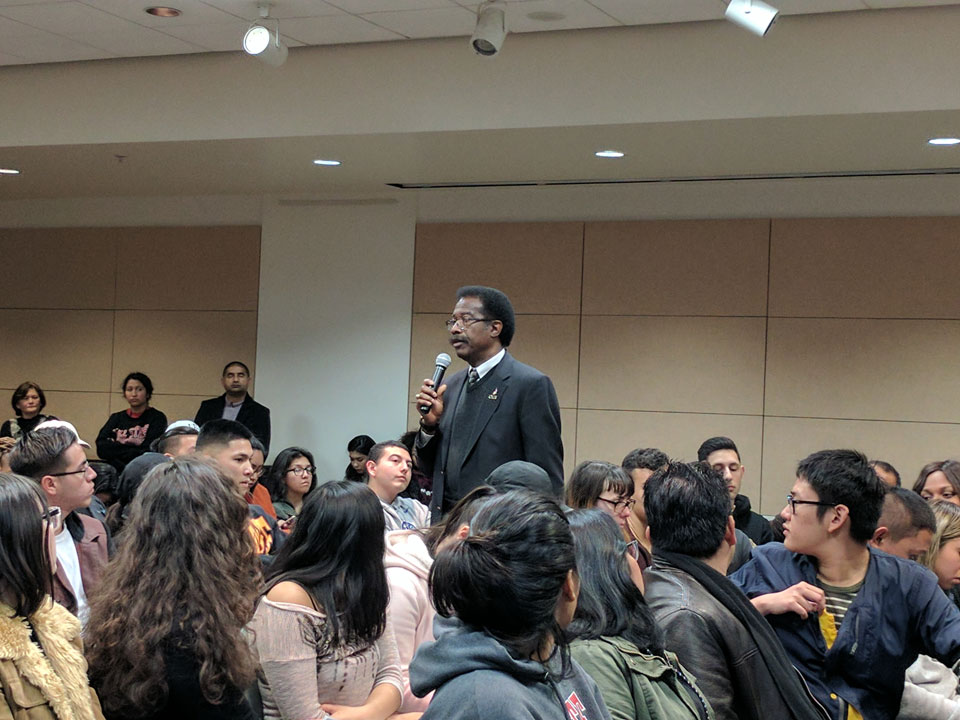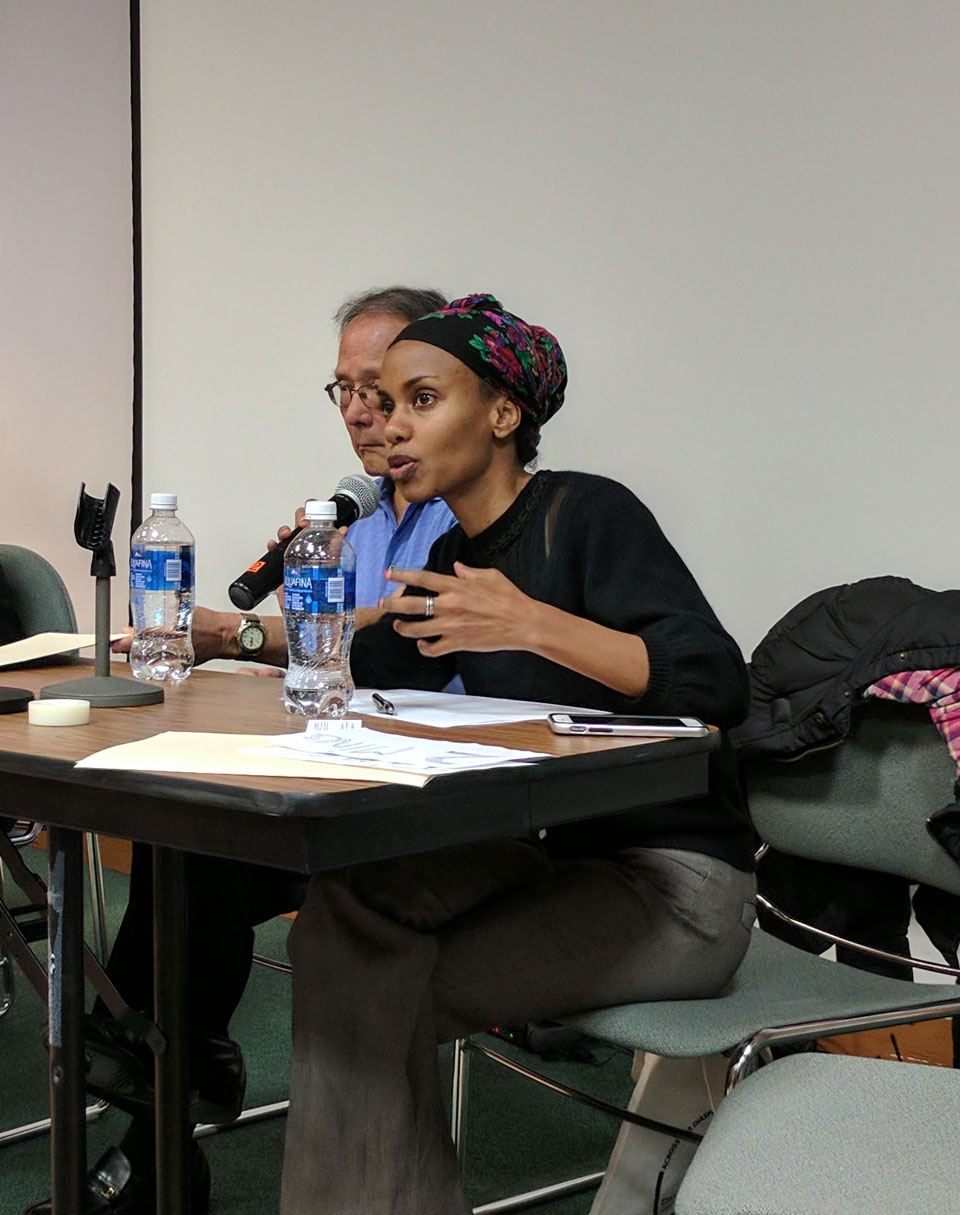CSUN Community Stands Together Against Trump’s “Muslim Ban”
Nisrin Elamin, a Stanford University graduate student, returned from her Ph.D. research in Sudan in late January and was handcuffed, detained and questioned upon her arrival at New York’s John F. Kennedy International Airport.
Originally from Sudan, Elamin has lived in the United States for 24 years and became a permanent resident in 2012. After President Donald Trump last month signed Executive Order 13769 — banning citizens of seven Muslim countries from entering the U.S. — Elamin was one of more than 100 people detained at U.S. airports, unable to enter the country.
“Leaked drafts of the order prompted my university to help me get on the next flight back to the U.S.,” Elamin said. “I was hoping to get back before the order was signed, but I missed a connecting flight and landed at JFK about 20 minutes after immigration officers found out about the order — without any direction on how to implement it.”
Elamin, who spoke about her experience on PBS Newshour participated in a panel at California State University, Northridge on Trump’s “Muslim Ban” on Feb. 27. Held in the Jack and Florence Ferman Presentation Room, the program was open to CSUN students, faculty and staff, as well as the local community. The panelists discussed the order’s repercussions and addressed audience concerns, which were mainly expressed by students.
“I’m hopeful that as we journey through these challenging times that are clearly ahead of us, that everyone will get a chance to have some aspects of their own values shaken,” said William Watkins, vice president of Student Affairs and dean of students. “We have an opportunity to reaffirm who we are and learn how to use our voices to support each other.”
Aside from Elamin, panel speakers included Syed Hussaini, outreach coordinator of the San Fernando Valley chapter of the Council of American Islamic Resources (CAIR); Phil Shigekuni, president of the Japanese American Citizens League (JACL) and Obaida Albaroudi, president of the Muslim Students Association (MSA) West.
“The effect [of Muslim discrimination] on college students is detrimental — not only for Muslims, but also the community at large,” Albaroudi said. “You’ll find that Muslims will sometimes shy away [from different movements] like protesting for the Dakota [Access] Pipeline or protesting for Black Lives Matter, because they are scared they might meet certain indicators that will allow the government to focus in on them. So, they choose not be active in regards to politics, even if it has nothing to do with Islam.”
At CSUN, Albaroudi and Hussaini informed the audience of resources that support Muslims and shared stories about students they had assisted through CAIR and MSA. Shigekuni spoke about the history of Japanese-American persecution during World War II and emphasized Japanese-American solidarity with the Muslim community in fighting the travel ban.
“These immigration orders are making many people feel deeply unsafe and fearful,” Elamin pointed out. “Some of the hate mail I have received is from people trying to convince me that what happened to me is necessary to keep our country safe. And in my head I keep thinking, ‘safe for whom?’ I think this is an important question that everyone in this country needs to ask themselves. Who does and doesn’t have the right to feel safe and secure?”





 experience
experience